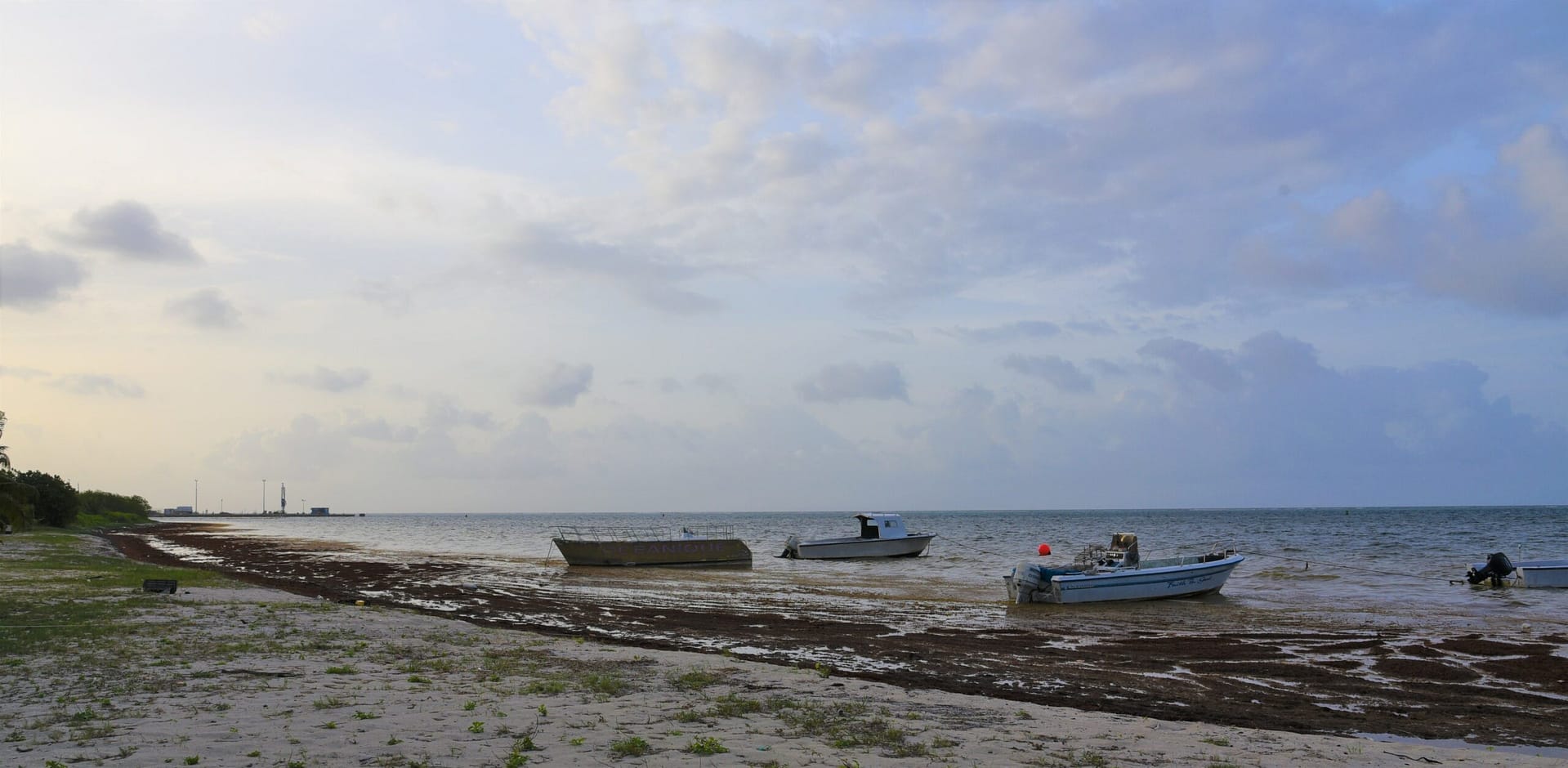August 3, 2022

FEMA Regional Administrator Makes In-Person Assessment
Of Sargassum Impact on St. Croix Water Production Operations
U.S. VIRGIN ISLANDS — Federal Emergency Management Agency Region 2 Administrator David Warrington arrived in the Territory on Wednesday, August 3, to make an in-person assessment and get updates on the impact the heavy influx of Sargassum seaweed is having on the V.I. Water and Power Authority’s water production operations on St. Croix.
While water production and capacity has remained at almost normal levels, the joint operation between FEMA and other federal partners and Government of the Virgin Islands (GVI) agencies and departments continue their contingency efforts to mitigate any adverse effects from the seaweed.
As the situation remains manageable, the joint federal and local team has also begun talking about longer-term, more permanent, solutions to avoid future incursions or impacts on water production from the annual migration of Sargassum seaweed into the Territory’s waters.
“As we continue to face the reality of climate change and its impact on places like the Virgin Islands, FEMA and the entire federal government are going to have to continue working closely with our partners in the Government of the Virgin Islands to innovate and find creative solutions for these new challenges that face us,” Administrator Warrington said. “While water production in St. Croix remains stable right now, our federal teams are using this time to work with the territory to develop plans not only for the short term provision of water but long-term solutions that set the territory and WAPA up for success in the future.”
Governor Albert Bryan Jr. thanked the federal agencies for their assistance.
“Our territory is one the many places most vulnerable to the impact of climate change, and I am grateful for the cooperation and support of our federal partners in our efforts to proactively develop a permanent solution to mitigating this annual nuisance,” the Governor said.
The team also is monitoring for any possible incursion of seaweed on St. Thomas-St. John water facilities, although that has remained relatively free of adverse impacts at this point.
The scope of the current federal declaration is limited to actions taken by the federal government at the request of the territory to protect the offshore water intake operations in Estate Richmond so it can continue operating at normal levels.
FEMA, experts from other federal agencies and the territory are working collaboratively on contingency plans that include discussion related to booming strategy, sargassum collection and removal while considering impacts to the environment.
Under the federal emergency declaration, actions taken by the federal government at the territory’s request will be subject to a 75% federal and 25% territory cost share.
Governor Bryan continues to advise St. Croix residents and businesses to conserve water as they can.
Decaying Sargassum creates hydrogen sulfide (H₂S), which is a colorless gas with a strong odor of rotten eggs that can cause wide range of health effects, including irritation to the eyes and respiratory system. The effects depend on how much hydrogen sulfide a person breathes, the concentration of H₂S, how long the person breathes it and the person’s general health. For more detailed information, visit the Department of Health webpage at doh.vi.gov.
The Department of Licensing and Consumer Affairs has clarified that while the current Sargassum State of Emergency is in effect Territory-wide, the price freeze currently in place for water products and services applies only to St. Croix.
For accurate and updated information regarding the WAPA water plant on St. Croix and the Sargassum State of Emergency, go to the Government of the Virgin Islands Joint Information Center at vi.gov/jic/.
